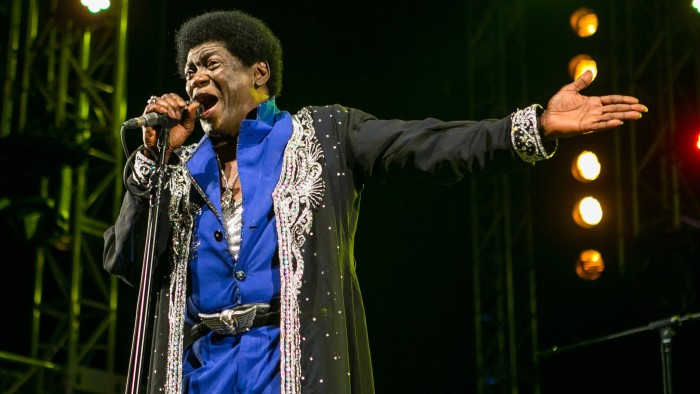Kept hanging on for their success

Roula Khalaf, Editor of the FT, selects her favourite stories in this weekly newsletter.
At 66, Jeremy Corbyn, who was appointed leader of the UK’s Labour party last weekend, has risen up the ranks relatively late, succeeding Ed Miliband, who is more than two decades younger. His appointment counters the traditional pyramid-shaped career trajectory: education, a step on the first rung of the ladder, up, up, up to a peak before easing down to retirement. The bumps of life of course mean that such a model represents an ideal rather than reality for many, particularly those — still largely women — who take time out or step back to be the primary carer for their children or elderly parents.
Wunderkinds lauded in “Under-30s” lists are celebrated for their vigour and creativity. Yet for some men and women, success might not come until their fifties, sixties or seventies. Raymond Chandler did not publish his first novel, The Big Sleep until he was 51; Mary Wesley debuted with The Camomile Lawn at 71. Actor Bill Nighy did not become a public name until his fifties, after starring as a washed-up rocker in the Richard Curtis film, Love Actually. Malcolm Gladwell wrote in a New Yorker piece on creative people who achieve late success that they are sometimes seen as late starters or “artists who are discovered late; the world is just slow to appreciate their gifts …Late blooming is simply genius under conditions of market failure”. Yet it might also be that people are not as good as they are later in their careers, he suggests.
Increased life expectancy means that people will work longer. Perhaps we will see more careers flourishing later? I spoke to three people who achieved success — a subjective term — relatively late in their careers.
Margaret Hodge
The Labour MP for Barking and Dagenham won her seat at the age of 50. Before that, she had stints at PwC, the professional services firm, and as councillor and later, leader of Islington Council. Before Westminster, she says, her focus was on raising her four children while keeping “a foot in the labour market”.
Experience is important and undervalued, she says. “I get angry at the youth cult. The urgency of the career.”
Her advice is, “it really doesn’t matter if you coast for a few years. It’s even more important now as the working life is extending.” She is rebuked by young women for telling them to have children. “It’s so joyful and important. Of course it’s not what they want to hear.”

The idea of being a “late bloomer” is met with peals of laughter. However, she concedes that she came to the public’s attention when she fought the British National party in 2006 to keep her seat and then, in her sixties, became a household name as chair of the public accounts committee from 2010, before stepping down this year. In that job she earned a reputation for interrogating the likes of Google, Amazon and Starbucks on their tax arrangements. (Although critics charged her with grandstanding).
Now, at the age of 71, she feels that opportunities have opened up for her — a book is in the pipeline, she has been appointed a visiting professor at King’s College London, and is chairing an all-party parliamentary group on “responsible” tax.
There were times, she concedes when she felt frustrated to see her male peers rise up the government ranks. “Of course I felt moments of ‘Why’s David Blunkett in the cabinet and not me?’” Now she is older, she says there is a deep-seated prejudice. “Women over 50 are ugly and old.” Is she cheered by Mr Corbyn’s election? “No, he’s a middle-class white man and that culture is what dominated UK politics for ever.”
Charles Bradley
This summer the 66-year-old soul singer played Coachella music festival in California. Despite performing in small venues all his life, including as a James Brown impersonator, he has had bouts of homelessness and worked in kitchens to make money. In 2011, he finally released an album on Daptone Records music label. That his career story reads a bit like a fairytale is part of his marketing. A feature film of his life,Soul of America, released in 2012, helped spread his story and publicise his talent.
Yet at his darkest moments, he says, he fell into depression. “I felt frustrated. Never got an honest chance. I felt there was not too much more to go through. The only thing left was death. I felt like giving up on music …I would pray hard and cry.” His faith kept him going.
Mr Bradley feels that the experiences have given his music depth. “You have to live it, to get hurt.” For those singers that reach fame and fortune at a young age, there is often a cost, he says: “A lot of them have sold their spirit.”
His late breakthrough means he “can look through the phoniness of people who just want to know me now”. While he is materially far more comfortable than he has been, he still lives in his late mother’s home in Brooklyn.
Mr Bradley questions the concept of success. “I want nice surroundings and enough money to buy things. Am I famous? I’m still struggling …trying to keep my spirit high.”
Rob Knighton

Five years ago the carpet fitter was sunbathing in London Fields park in east London when he was spotted by a scout for a model agency. He was 50. Today he has appeared in campaigns alongside David Beckham for H&M, the fashion retailer, and acted in the indie film Everyone’s Going To Die.
It was a career change the 55-year-old never anticipated. “I was up for doing something easier,” he notes. Fitting carpets was physically demanding. “I was surprised I did it for so long, [there were] aches and pains.”
At first he was daunted by modelling — a job, he believed that was better suited to young, muscular men. “When I realised they wanted lines, I relaxed.” The income exceeds his past earnings as a carpet fitter as well as being more glamorous, yet he does not regret not making the switch earlier. “I know the value of money. I meet young models who don’t know how lucky they are. I feel lucky.” There are no regrets. “I’m happy in this job. But I was happy as a carpet-fitter.”
emma.jacobs@ft.com
Twitter: @emmavj
Comments